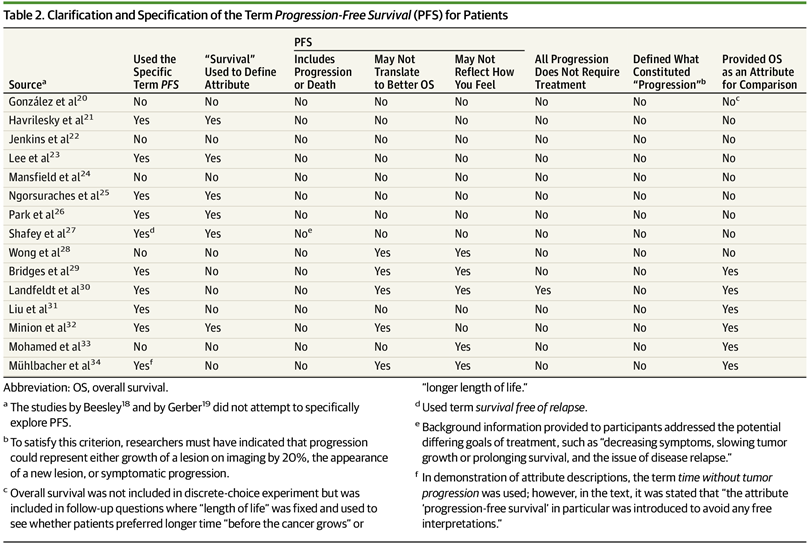Progression-free survival (PFS) is a critical metric in assessing the effectiveness of treatments in controlling diseases, particularly in clinical trials. PFS measures the time during a study or treatment period where a patient’s disease does not worsen or progress. It can indicate how well a treatment is slowing down the progression of an illness. It is important in comparing different treatment approaches or medications in clinical trials. Understanding PFS is vital for clinicians and researchers to evaluate treatment effectiveness.
Patients may care about PFS as it is generally correlated with longer survival, but do they value it independently of overall survival (OS)? Patients may appreciate better PFS if it leads to a higher quality of life with fewer symptoms or less anxiety about disease progression. Research by Raphael et al. (2019) found a diversity of perspectives among patients with advanced cancer regarding the understanding and value of PFS.
In their systematic review, 17 studies were included, showing varied presentations of PFS to cancer patients. Some studies presented PFS as the most important attribute, while others emphasized quality of life factors. The heterogeneity in patient responses highlights the need for further research to fully grasp how patients perceive the value of improvements in PFS.






